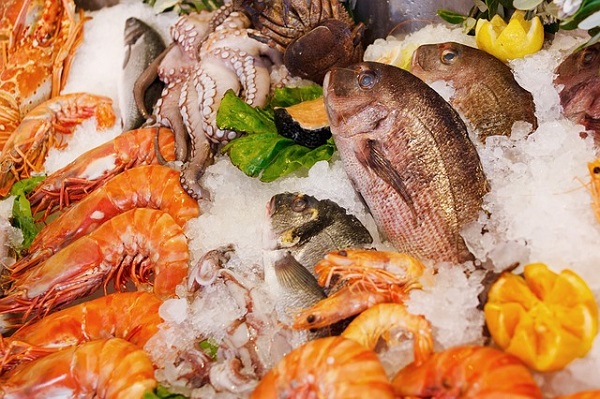
Written for Bristol Bites by Allen Brown
Bristol means “a place at the bridge”, and enjoying the most flavourful and mouthwatering seafood over the bridge is the happiest hours in life. Tasting all jewels of the sea has its own worth, but cooking these delicious sea species requires creative technique, safety and practices.
The sea has an enormous variety of fish and seafood like tuna, cod, shrimps, scallops, salmon, mussels and numerous other species.
Before sharing some guidelines to cook amazing seafood, do consider the use of correct utensils, tools and appliances that help you enhance your culinary skills. http://yourcookingexpert.com is one of the sites that display features, tricks and reviews of useful kitchen gadgets.
Seafood guidelines
Seafood is always the perfect option for an easy, quick and healthy meal. The minimum time required to cook seafood perfectly is 4-7 minutes. The choice is all yours, whether you grill, bake or broil, fry fish or even toss in a salad. Expect indulgent flavours and delicious dishes.
Seafood Portion
Lots of nutrition charts are available online that shows the right amount of seafood you should enjoy in one week. Use them and plan an appropriate chart that suits your taste and health.
Seafood should be lean and tasty
Seafood is full of Omega-3 and fatty acid. Rather than adding extra fats, try to roast, grill, broil or bake them. Avoid using crumbs and creamy sauces, which will add extra calories to your portion.
Temperature
Try to defrost seafood to room temperature. Don’t marinate seafood overnight: this practice makes fish mushy. Using herbs, spices, lemon or lime juice and an adequate amount of salt is enough for a delicious taste. The perfect fish cooking temperature is 145F, or use a fork while cooking to check the flaky layer on top.
Cooking
Be careful while cooking seafood: it’s easy to overcook. It is better to remove it from the stove undercooked than to overcook, as it will keep cooking even after being removed from the heat.
Check oysters, clams, squid and mussels before cooking. Throw away those which aren’t open even after cooking. Shrimps, scallops and lobster turn milky or opaque after cooking, this is the sign that they are perfectly cooked.
Shellfish can create a meal with plenty of flavour: think mussels marinara, steamed clams, oyster stew or calamari pasta.
To prepare fish fillets, different techniques should be learned for both round and flat-bodied fish. Even for preparing fresh prawns or shrimps, there are techniques used to be learnt to give the desired butterfly shape, perfect for grilling.
Health and Seafood
Seafood is rich in Omega-3 that can help improve children or infants’ nervous systems. A good intake of seafood is also a healthy option for pregnant or breastfeeding women. Serving seafood to children twice a week (in appropriate portion sizes) will help them to grow healthy. It also helps to prevent heart disease, and to build strong bones and muscles.
Seafood Shopping
Having seafood twice a week doesn’t need to be expensive. Buy fresh, or choose frozen – which is normally lighter on the pocket. Special offers, seasonal sales, and special coupons can help you stay in your budget.
Seafood is a real treat, and the whole process – from buying to serving these protein-packed foods on your plate – is an adventure in itself. So handle it carefully, prepare it properly and eat it happily. Enjoy your favourite food.
